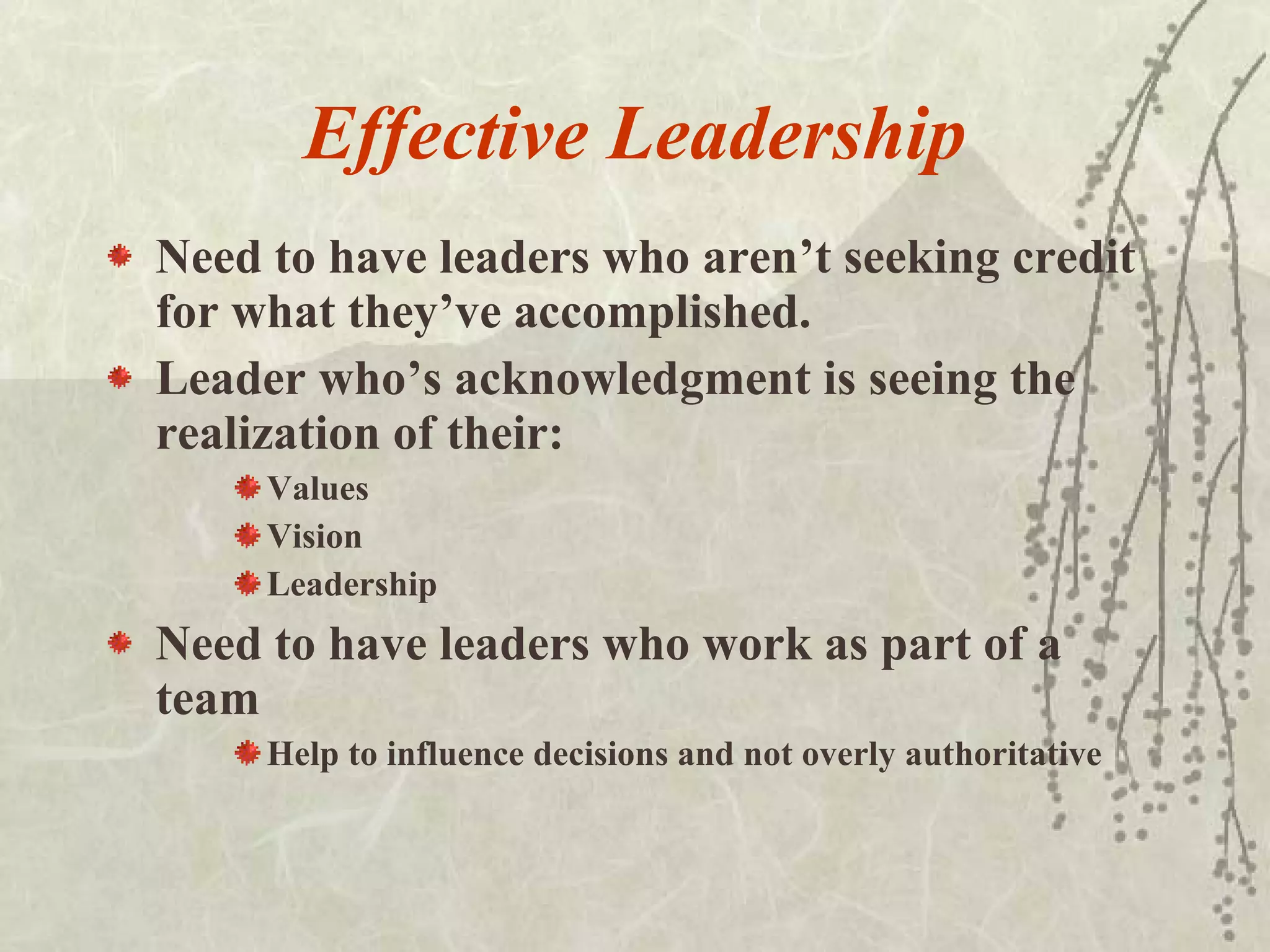Leadership is defined in multiple ways including inspiring others to action, guiding undertakings towards a shared goal, and creating a vision for others to achieve. Leadership is important as it leads to effectiveness, innovation, and collaboration. Barriers to leadership include the intoxicating nature of power and the potential for dominance over others. Future leaders think globally, anticipate opportunities, create shared visions, develop and empower people, appreciate diversity, build teams, embrace change, and are technologically savvy. The eight principles of successful leadership are integrity, creativity, vision, trust, participation, learning, diversity, and community. Effective leadership involves not seeking credit, realizing values and vision, and working as part of a team rather than being overly








